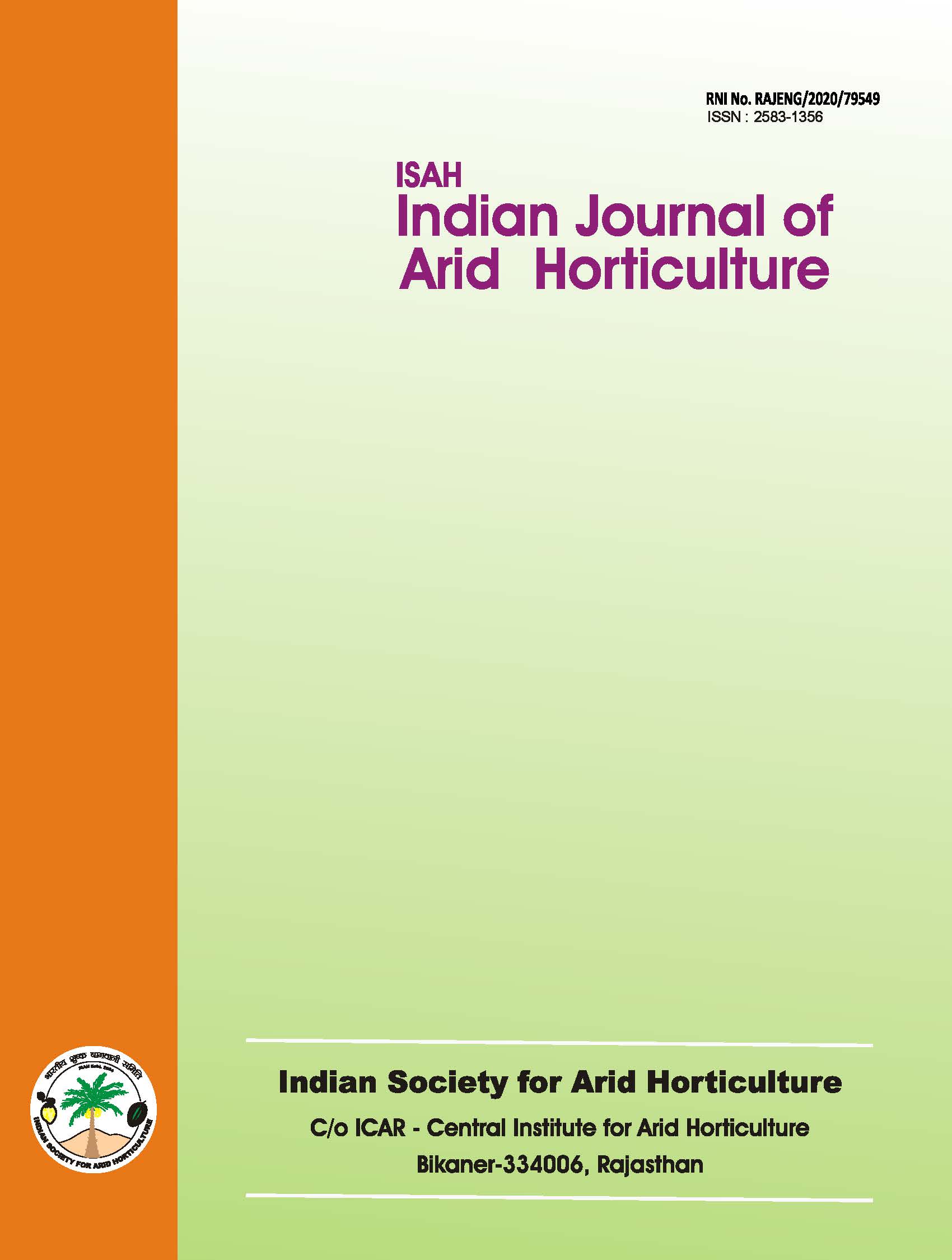Yield optimization in isabgol through improved seed and fertilizer management practices in Transitional Plain of Luni Basin of Rajasthan
Keywords:
Foliar nutrition, improved seed, integrated nutrient management, isabgol, seed yieldAbstract
Field studies were conducted to evaluate the significant varieties/ genotypes and fertilizer management practices for harvesting the higher seed yield of isabgol in Transitional Plain of Luni Basin of Rajasthan. The maximum seed yield of 14.31 q/ha was provided by variety RI 89 followed by RI 3025 and GI 2 with 14.10 and 13.67 q/ha, respectively. The application of FYM @ 10 t/ha and biofertilizers (PSB & Azotobactor) along with chemical fertilizers @ 30kg N + 25 kg P2O5/ha provided 32.92% increase in seed yield of isabgol over farmer’s practice. The use of improved seed with recommended seed rate of 5 kg/ha along with foliar spray of 1% soluble NPK at flowering stage also provided 27.35% increase in seed yield over farmer’s practice.
Downloads
References
Barfa, R.S., Upadhyay, A., Khan, N.A. and Dwivedi, S.K. 2011. Evaluation of different germplasm of isabgol for biochemical parameters, productivity and quality traits. Journal of Applied Sciences Research, 7(3): 327-332.
Chopra, R.N. 1930. Plantago ovata- Isabgol- in chronic Diarrhea and Dysenteries. Indian Medical Gazette, 65: 360.
Gupta, R.R., Aggarwal, G.G., Singh, G.D. and Chatak, A. 1994. Lipid lowering efficiency of Psyllium hydrophilic mucilloid in non-insulin dependent diabetes mellitus with hyperlipidemia. Indian Journal of Medical Research, 100: 237-241.
Mandal, K., Gajbhiye, N.A. and Maiti, S. 2007. Fungicidal management of downy mildew of isabgol simulating farmer's field conditions. Australasian Plant Pathology, 36: 186-190.
Patel, B.S., Patel, J.C., Sadaria, S.G. 1996. Response of blond psyllium to irrigation and phosphorus. Indian Journal of Agronomy, 41: 311-314.
Segawa, K., Kataxa, T. and Fuku, Y. 1998. Cholesterol lowering effect of psyllium seed associated with urea metabolism. Biological and Pharmaceutical Bulletin, 21: 184-187.
Viqar, Z., Manzoor, S.M., Mehreen, Z. and Aziz, N. 2002. The presence of anti-amoebic constituents in psyllium husk. Phytotherapy Research, 16: 78-79.

